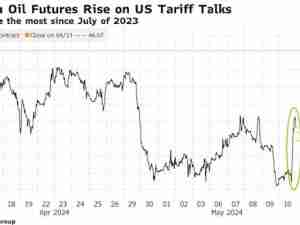Banks must brace for Russia sanctions row, warn US industry officials
By: Reuters | Mar 20 2014 at 04:36 PM | International Trade
U.S. blacklistings over Russia's annexation of Crimea may spark a sanctions exchange that would leave banks scrambling to assess their exposure to targeted parties and to uncover murky financial linkages, according to industry officials.
Russian business leaders who are potential sanctions targets have extensive and complex ties around the world, making it hard to track their financial interests, speakers said at an anti-money laundering conference in Florida this week.
On the other hand, Western businesses' extensive investments in Russia make them vulnerable to Russian action. Moscow has already threatened economic retaliation.
"I think this may be one of the very first times that the U.S. government has actually implemented sanctions against, or that implicate, another country that can actually bite back," said Bill Fox, managing director of Bank of America's global financial crimes compliance operation.
"That could escalate real quickly, and I think that's the real risk here ... It will be uncharted waters, frankly."
Russia has an array of financial levers it can pull, said Juan Zarate, a former senior U.S. Treasury and White House policymaker on terrorism financing.
"They have enormous trade in particular with Europe. The gas and oil tool, they've used in the past to ratchet up pressure on Ukraine and Eastern Europe. They have the ability to sanction Western banks, as they have suggested that they might," Zarate told the conference.
"And frankly in the most nefarious of contexts, you could imagine the Kremlin locking arms with certain organized criminal elements to undermine U.S. financial interests, including in cyberspace."
Russia recorded a total of $94 billion in foreign investment inflows in 2013, jumping to third in the world after the United States and China, according to the United Nations.
The United States has a relatively small $14 billion in direct investment in Russia. The EU accounts for about three-quarters of foreign direct investment in the country.
The CIA estimated total Russian investment abroad at $439 billion at the end of 2013.
The White House has sanctioned 11 Russians and Ukrainians in response to Russia's annexation of Crimea from Ukraine, completed this week. It has threatened more measures if the crisis is not resolved.
The EU has also weighed in, issuing travel bans and asset freezes against 10 Russian politicians, three military officials and eight Ukrainians, mostly from Crimea. Some of the names match those on the U.S. list.
The EU on Thursday was considering additional sanctions.
Sanctions Fight
BofA's Fox told bankers attending the anti-money laundering conference that a situation where two economic powers appear poised to use sanctions as weapons of foreign policy could get "pretty crazy".
If sufficiently provoked, Russia could nationalize U.S. investments in the country, said Chip Poncy, a former U.S. Treasury official who is now Zarate's partner in the anti-laundering consultancy Financial Integrity Network LLC.
The White House this week warned U.S. investors away from Russian stocks.
The U.S. Securities and Exchange Commission has also begun contacting public funds with investments in Russia to make sure they are properly managing risks and disclosing their holdings to investors, according to people familiar with the matter.
Russia Vulnerable
However, Russia is more dependent on the global financial markets than are North Korea and Iran - two countries that have been the focus of long term U.S. sanctions.
That means Russia may also be more vulnerable to U.S. sanctions, Poncy said.
"Russia has such keen exposure to the (U.S.) dollar, to trans-national markets, to the G20, to the G7, to the BRICS, to the post-industrialized countries, and in that sense we have real opportunity," he said.
Some global banks with "entanglements" in Russia probably chose to do business there because the U.S. government historically has not levied sanctions against major economic powers, Poncy said.
He added that banks should now be focused on determining the degree of their exposure to Russian clients.
This is a "complex, multi-faceted" situation and banks should put together monitoring teams that include sanctions experts, said Darren Donovan, a principal with consultancy KPMG.
"Have someone on your team that is really staying very current with this and do an assessment, 'What is the exposure? What is the nature of your relationships as it relates to Russia,'" he said. "It costs very little to look."
Tracking Targets
Tracking the holdings of sanctions targets may be hard.
Some potential Russian targets are legitimate business leaders, belong to broad consortia, or have extensive investments around the world.
Also at this stage, banks may find relatively few transactions involving political targets who are sanctioned. The U.S. government threatened sanctions before imposing them, giving these people time to move their assets out of reach.
"We think monies have already started moving, right?" John Byrne, executive vice president of the Association of Certified Anti-Money Laundering Specialists, asked his fellow panelists.
Poncy noted, however, that the assets of some targets may not be easily convertible for swift movement.
Russia last year barred state officials and their families from holding bank accounts or other financial assets abroad.
That was seen as a part of campaign by Russian President Vladimir Putin to force wealthy officials to keep their money in Russia and tighten control over the country's elite. (Reuters)








